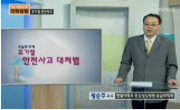Recently, the government has laid an institutional foundation for reducing safety accidents, but the cost of industrial accidents and social losses is increasing. In addition, safety accidents in the military cause property damage and loss of lives, l...
http://chineseinput.net/에서 pinyin(병음)방식으로 중국어를 변환할 수 있습니다.
변환된 중국어를 복사하여 사용하시면 됩니다.
- 中文 을 입력하시려면 zhongwen을 입력하시고 space를누르시면됩니다.
- 北京 을 입력하시려면 beijing을 입력하시고 space를 누르시면 됩니다.

특수전부대의 안전풍토가 조직효과성에 미치는 영향에 관한 연구 = A Study on the Effect of Safety Climate of the Special Warfare Forces on Organizational Effectiveness
한글로보기https://www.riss.kr/link?id=A108622444
- 저자
- 발행기관
- 학술지명
- 권호사항
-
발행연도
2023
-
작성언어
Korean
- 주제어
-
등재정보
KCI등재
-
자료형태
학술저널
- 발행기관 URL
-
수록면
85-101(17쪽)
- 제공처
-
0
상세조회 -
0
다운로드
부가정보
다국어 초록 (Multilingual Abstract)
Recently, the government has laid an institutional foundation for reducing safety accidents, but the cost of industrial accidents and social losses is increasing. In addition, safety accidents in the military cause property damage and loss of lives, leading to non-combat losses, as well as distrust of the military and reduced combat power, requiring attention and related research on safety. Therefore, the purpose of this study is to empirically analyze the effect of the safety climate of special warfare forces on organizational effectiveness. The results of this study are as follows. The effects of safety climate on organizational effectiveness were studied and found that safety intervention, safety communication, safety education, physical environment and work risk assessment, safety supervisor's supportive environment, safety work competence, and safety rules and procedures affect organizational effect. However, it was confirmed that the work pressure caused by convenienceism and the level of involvement of the unit members did not affect the organizational effectiveness.
동일학술지(권/호) 다른 논문
-
재해경감활동 목표 달성 계획 기간을 고려한 중점관리 대상 위험 우선순위 선정 기준에 대한 연구
- (사)위기관리이론과실천
- 양준
- 2023
- KCI등재
-
재난 시 소셜미디어 사용지침(ISO 22329: 2021) 국제표준의 활용방안 연구
- (사)위기관리이론과실천
- 강휘진
- 2023
- KCI등재
-
솎아베기에 따른 산불연료량과 수관화 위험도 변화 연구 - 강원도 고성 소나무림 대상으로 -
- (사)위기관리이론과실천
- 이선주
- 2023
- KCI등재
-
COVID-19 시기 플립러닝을 활용한 핵심 간호술 실습교육 효과
- (사)위기관리이론과실천
- 정성원
- 2023
- KCI등재




 스콜라
스콜라






